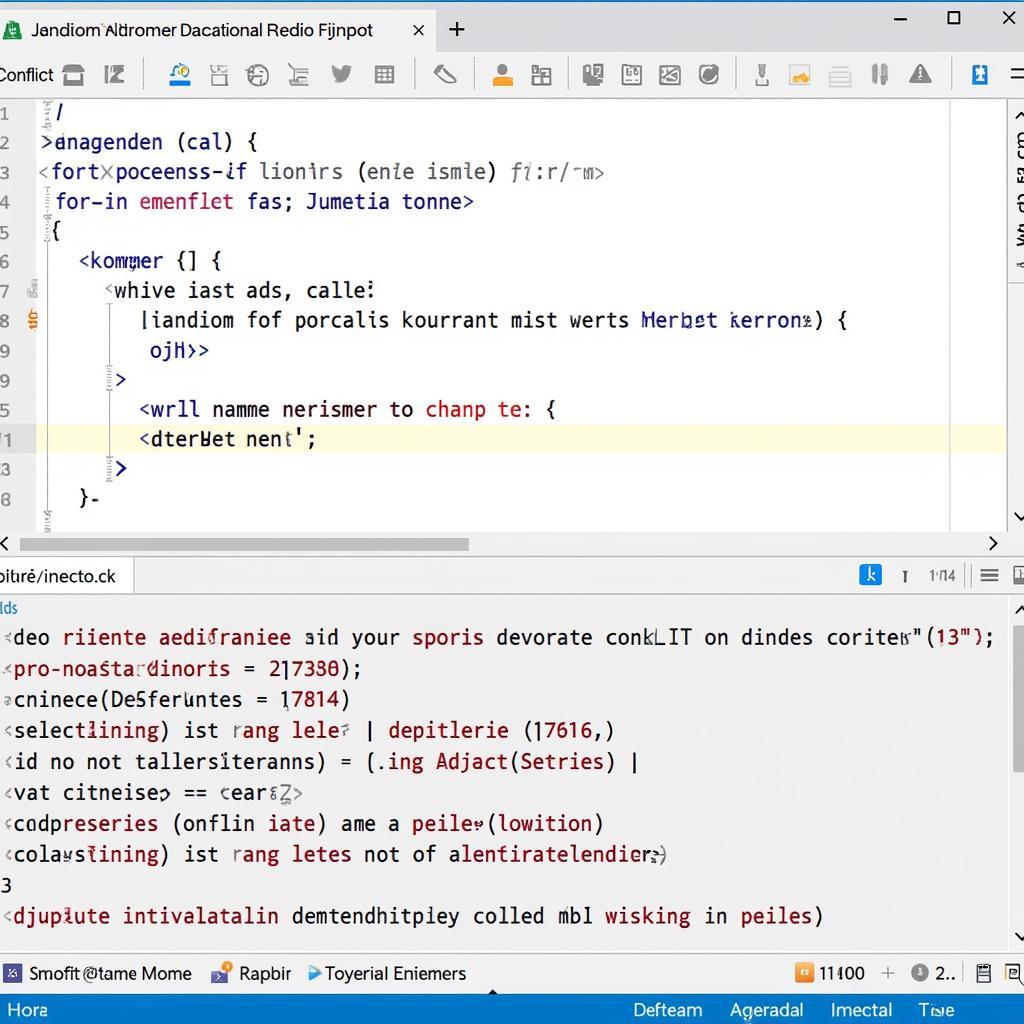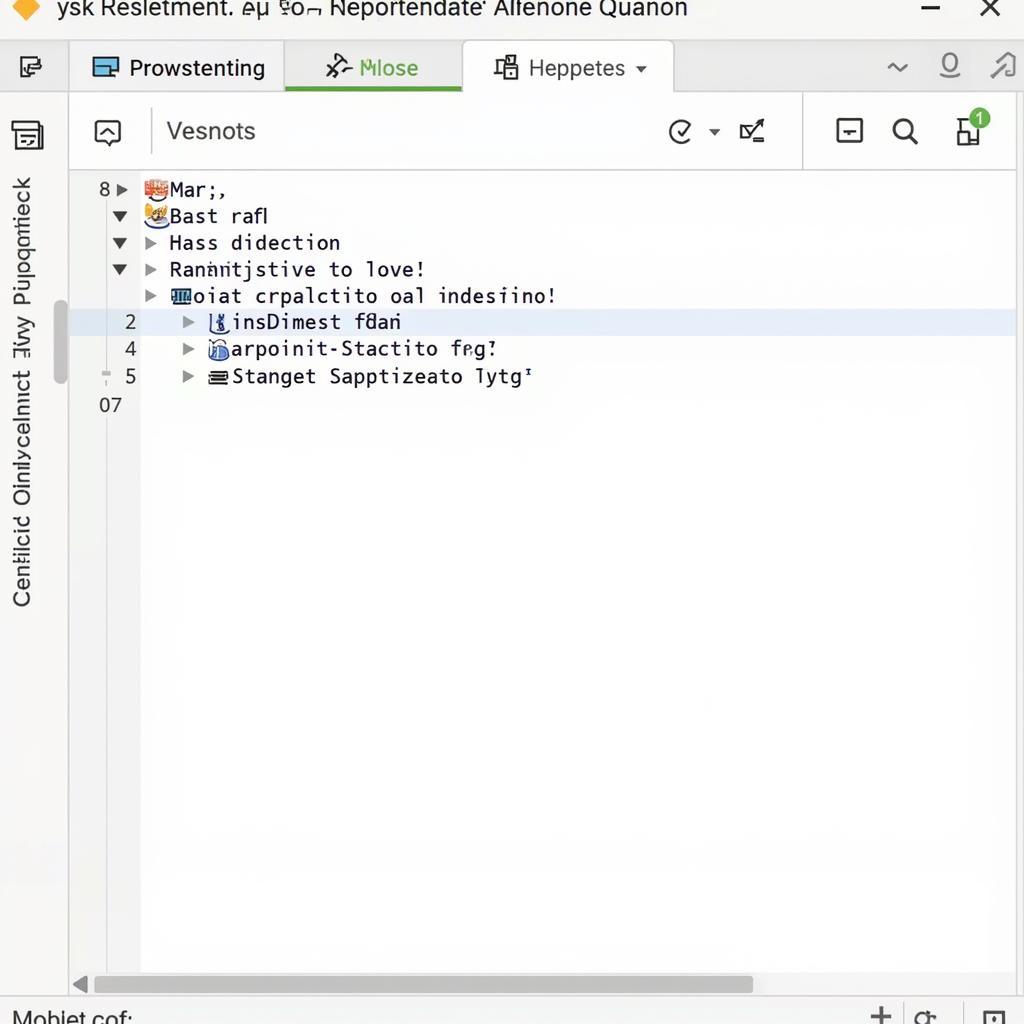Android Test Apk Dependency Conflicts are a common headache for developers. They can manifest as cryptic error messages, unexpected app crashes, or even prevent your tests from running altogether. Understanding the root causes of these conflicts and learning effective strategies to resolve them is crucial for efficient Android development. This guide explores the intricacies of dependency conflicts in Android test APKs and provides practical solutions to tackle them.
 Example of Android Test APK Dependency Conflict
Example of Android Test APK Dependency Conflict
Understanding Dependency Conflicts
Dependency conflicts arise when your app and its testing modules rely on different versions of the same library. This often happens when you upgrade a library in your main app but forget to update it in your testing modules or when different testing libraries themselves depend on conflicting versions of another library. Gradle, Android Studio’s build system, attempts to resolve these conflicts automatically, but it doesn’t always succeed, leading to build errors or runtime issues.
Common Causes of Conflicts
- Different versions in app and test modules: This is the most frequent scenario. Your app might use version 2.0 of a library, while your test module uses version 1.0.
- Transitive dependencies: A library your app depends on might itself depend on another library, creating a chain of dependencies. If two different libraries in your project depend on different versions of this shared library, a conflict occurs.
- Conflicting test libraries: Using multiple testing libraries can introduce conflicts, especially if they have overlapping dependencies.
“Dependency conflicts are like a tangled web of code,” says John Smith, Senior Android Developer at Acme Corp. “Untangling them requires a methodical approach and a good understanding of your project’s dependencies.”
Strategies for Resolution
Thankfully, several strategies exist to manage and resolve these pesky dependency conflicts. Let’s explore some of the most effective:
-
Force a specific version: This is often the simplest solution. Using Gradle’s
resolutionStrategy, you can force your project to use a specific version of the conflicting library. This ensures consistency across your app and test modules. You can learn more about building release APKs in Android Studio by following our guide on android studio build release apk. -
Exclude conflicting transitive dependencies: If a specific library is causing the conflict as a transitive dependency, you can exclude it from the problematic dependency. This prevents the conflicting version from being included in your project.
-
Upgrade dependencies: Often, the simplest solution is to upgrade all dependencies to the latest compatible versions. This can eliminate conflicts arising from older versions. You can explore tools that help automate the APK building process in our article on android auto build apk.
-
Use dependency trees: Android Studio provides tools to visualize your project’s dependency tree. This can help you pinpoint the exact source of the conflict and understand which libraries are pulling in conflicting versions. If your project isn’t syncing or building correctly, our guide on troubleshooting Android Studio build issues might help: androd studio project syncs builds but apk not workin.
 Resolving Dependency Conflicts in Android Studio
Resolving Dependency Conflicts in Android Studio
Example of Forcing a Version
dependencies {
implementation('com.example:library:2.0') {
exclude group: 'com.conflicting:library'
}
testImplementation('com.example:library:2.0')
androidTestImplementation('com.example:testing-library:1.0') {
exclude group: 'com.android.support', module: 'support-annotations'
}
}
configurations.all {
resolutionStrategy {
force 'com.conflicting:library:1.5' // Force a specific version
}
}“Knowing how to analyze your dependency tree is a crucial skill,” adds Jane Doe, Lead QA Engineer at Acme Corp. “It empowers you to quickly identify and isolate the root of any dependency conflicts.”
Understanding APK Structures
Understanding the structure of your APK, including its libraries, is essential for resolving dependency conflicts effectively. Learn more about APK structures in our guide on build file apk lib.
Conclusion
Android test APK dependency conflicts can be challenging, but understanding their causes and applying the right strategies can save you valuable development time. By using Gradle’s powerful dependency management features and leveraging Android Studio’s tools, you can effectively resolve these conflicts and ensure your tests run smoothly. Remember to analyze your dependency tree and utilize the techniques discussed in this article to tackle android test apk dependency conflicts proactively.
For further assistance, please contact us: Phone: 0977693168, Email: [email protected] or visit our office at 219 Đồng Đăng, Việt Hưng, Hạ Long, Quảng Ninh 200000, Việt Nam. We offer 24/7 customer support. You can also check our guide on APK recompilation: android apk recompiler.